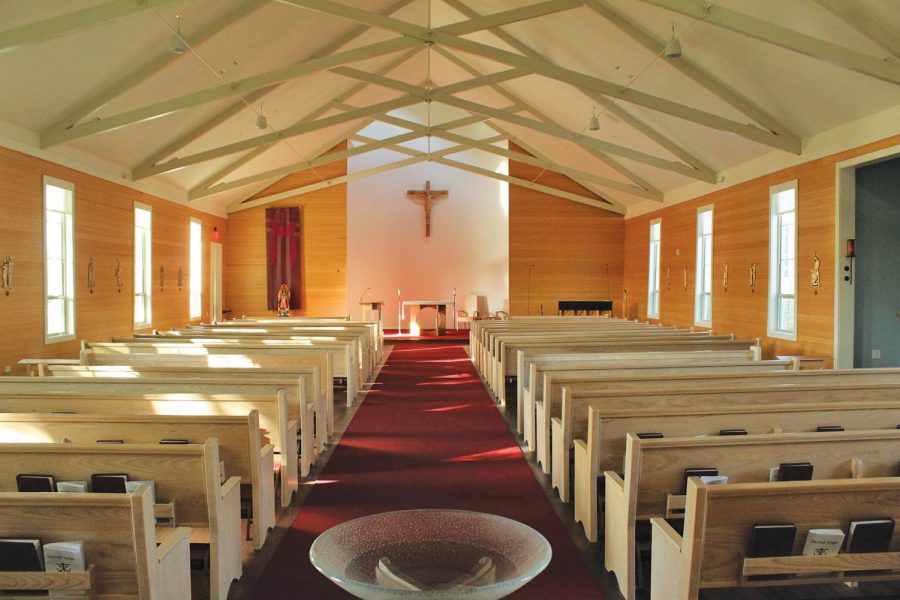Lent provides a time of joy, self-reflection through sacrifice
Lent is about fasting, spiritual growth, and doing good deeds. St. Edward’s encourages students to implement five eco-friendly practices for Lent or to simply better yourself.
After the festivities of Mardi Gras and St. Patrick’s Day, it’s a good time to reflect on the current season of Lent. For a few more weeks, until Easter Sunday on Apr. 21, our Catholic university is observing the Lenten season as a way to prepare for the coming holiday.
Traditionally, for Catholics, Lent is a time to sacrifice something in which we normally indulge in order to remind ourselves of the sacrifices of Jesus as told through the New Testament. However, many people who are not Catholic also choose to sacrifice something during Lent, without regard to religious duty.
This is because self-imposed sacrifice is one of the best ways we can reflect and improve as human beings. Sacrifice allows us to consciously remove ourselves from worldly affairs and connect with our inner self in a way that is unavailable to those caught in the whirlwind of modern life.
The experience of missing something we have given up for Lent allows us to take a step back and appreciate just how much we have the rest of the time. Take, for a hypothetical example, the use of your car. For those of us that live on campus, having a car is truly a luxury. Austin is a walkable city, with bike paths everywhere and (more or less) readily available public transportation. A car isn’t actually necessary to get from place to place, but it sure makes things easier. If you decided to sacrifice the use of your car during Lent, or even just on weekdays, you would instantly appreciate the vehicle to a degree that is almost impossible to attain if you hadn’t given it up in the first place.
A Lenten sacrifice need not be so drastic as giving up use of your car. Even giving up small things helps us appreciate what we have. The point of the sacrificial exercise is not to punish yourself, but rather to force yourself to undergo self-reflection.
A few years ago, I decided to give up coffee for Lent. I immediately regretted that decision. I got headaches and was short tempered, along with other forms of caffeine withdrawal. I certainly appreciated coffee more during this time, but sacrificing it provided an even more important insight than just how great coffee tastes: it alerted me that I had become dependent on caffeine. Without this sacrifice, I probably would never have figured that out.
You don’t need to be religious to understand the benefits of restraint and reflection that sacrifice provides. You don’t even need to try sacrificing something during Lent. However, Lent provides an atmosphere of reflection and improvement that makes giving something up just a little easier, and more importantly, gives you a goal to work towards: enjoying your sacrifice once again come Easter.







